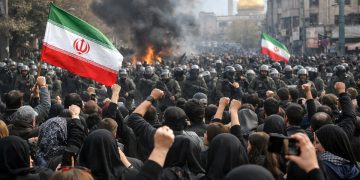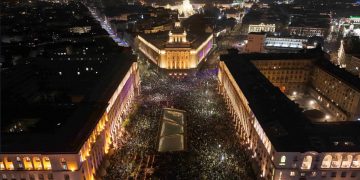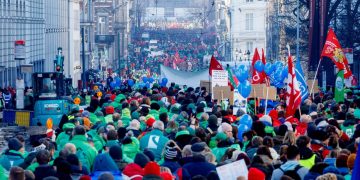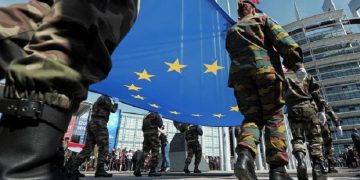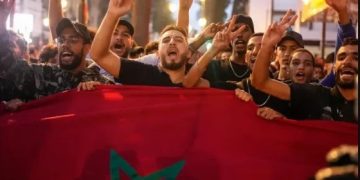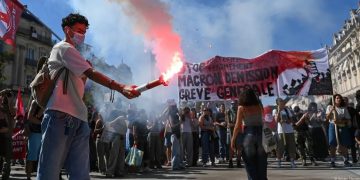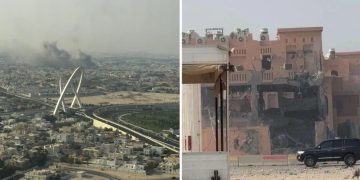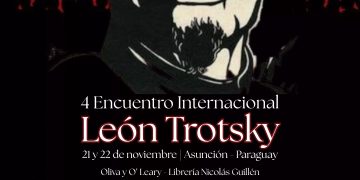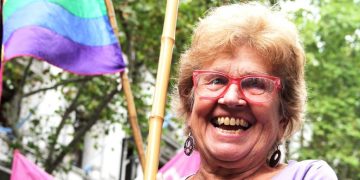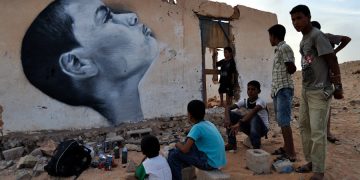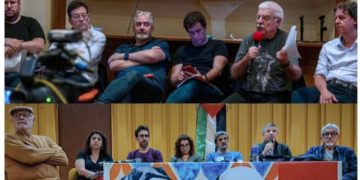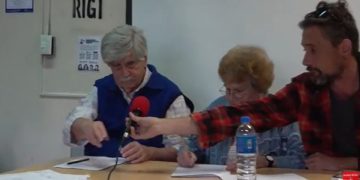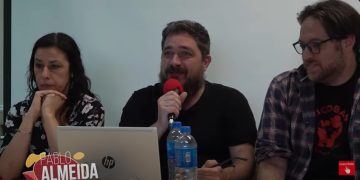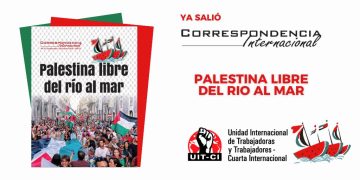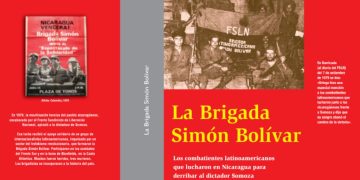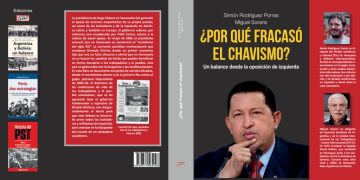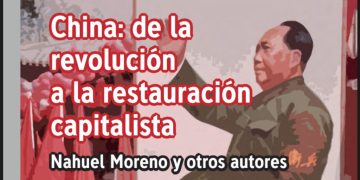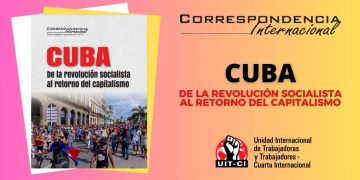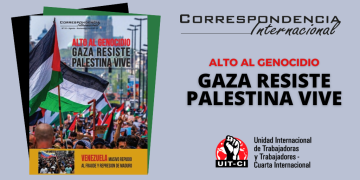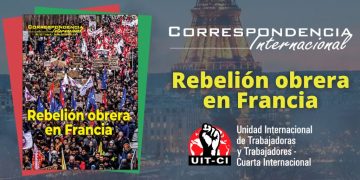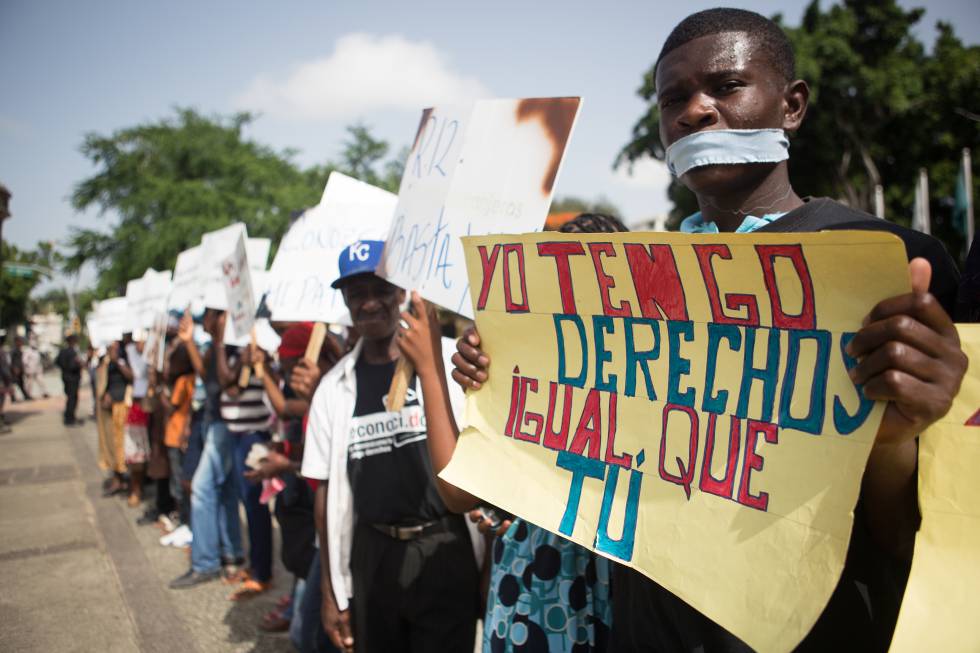 The undersigned organizations and personalities are trying to shine a spotlight on the persistence of racist hate crimes in the Dominican Republic. We wish to express our concern, outrage, and opposition to the hate speeches and xenophobic attitudes promoted by institutions and authorities of the Dominican State.
The undersigned organizations and personalities are trying to shine a spotlight on the persistence of racist hate crimes in the Dominican Republic. We wish to express our concern, outrage, and opposition to the hate speeches and xenophobic attitudes promoted by institutions and authorities of the Dominican State.
On June 3 of this year, in the neighborhood of Matanzas in Santiago, the second most populated and important city in the Dominican Republic, a racist horde carried out yet another lynching of two Haitian workers. As has been established in the official investigations, the businessman Gabriel Beato Burgos, unprovoked and motivated by anti-Haitian xenophobia, fired shots at two men of Haitian nationality and during this barrage a stray bullet shot by him struck and killed the young Dominican man Daniel Espejo. To cover up his crime, Burgos accused the Haitian men he shot at of having killed Espejo. Incited by the false story of the real killer, a mob of racists attacked Victor Pierre and Esil´homme Atul, two Haitian workers who were passing by and had no connection with the first incident. This racist mob killed Pierre and seriously injured Atul. Witnesses have expressed that several Haitian families living in the community were also threatened and expelled by the mob.
This brutal hate crime against two innocent Haitian workers is new evidence of the degeneration of the racist regime in the Dominican Republic, and particularly in the El Cibao region, which has become a center of operations for ultra-right nationalist groups. The mayor of Santiago, Abel Martínez Durán, who is a member of the Central Committee and the Political Committee of the ruling Dominican Liberation Party, has promoted hate campaigns against Haitian immigrants and has encouraged his followers to use excessive force, abuse, extortion and theft from Haitian nationals. Just last year a tourist from Kenya, Frederick Marwan, was attacked by the Santiago police only because they believed he was of Haitian nationality. In addition to stirring up lynch mobs, the Dominican government has also been engaged in the arbitrary expulsion of Dominicans of Haitian descent in illegal deportation proceedings which has been protested.
In the Dominican Republic, it’s sadly common for racist mobs to burn the homes of Haitian immigrants and expel them from the communities where they live. And virtually all of these crimes go unpunished. One of the most emblematic cases of racist violence in recent years was the murder of young Claude Jean Harry «Tulile», who was found hanging in a park in Santiago in 2015, even more outragesly the perpetrators of this muderous crime remain unpunished. According to the report «The Republic of Injustices» published in 2018 by the Initiative for Investigative Journalism in the Americas, in the last decade the press covered 67 lynchings of which 15 were against people of Haitian nationality. The real number of lynchings in the Dominican Republic is higher and the majority of the victims were young black dominicans.
Most media outlets amplify racist and conspiracy laden speeches of anti-immigrant public figures about a «silent invasion,» continuing a disastrous tradition of Trujillo’s fascist dictatorship. Institutional racism has reached such a point that the Dominican State has been adopting policies in the last six years, such as La Sentencia which seeks to erase birthright citizenship rights, to convert more than 100,000 Dominicans of Haitian descent into statelessness. In this context of oppression, Haitian and Dominican women of Haitian descent are especially vulnerable.
Discourses that fuel hatred and terror are the prelude to serious criminal actions, including hate crimes. It is common, and especially in pre-election periods, for government officials and candidates from most parties to use racist rhetoric, foisting on Haitian immigrants the country’s economic and social problems, especially criminality and a supposed overload of public services. The tendency is to deny the facts and statistics, which indicate that immigrant workers, mostly Haitians, contribute significantly to the country’s economic development. Far from parasitizing the Dominican State, on the contrary, they are commonly overexploited and deprived of the right to unionization, the full enjoyment of their labor rights and the principle of equal pay for equal work.
Together with the sectors of Dominican society that defend human rights and aspire for a better coexistence and respect for diversity amongst all people, we call for the broadest anti-racist solidarity to denounce the alarming and dangerous situation that Haitian immigrants and Dominicans of Haitian descent are going through in the Dominican Republic which is fueled by the rise of racist propaganda and racist State policies. We demand that the Dominican government cease policies which deny the rights of Haitian immigrants and Dominicans of Haitian descent. We demand an end to impunity for racist and fascist groups that incite lynchings, murders and mass expulsions of Haitians and Dominicans of Haitian descent. We demand that the Dominican State sign international pacts and treaties that defend the rights of migrants, and approve laws against racist hate crimes. And we demand justice for all victims of racist lynchings, especially Claude Jean Harry «Tulile» and Victor Pierre!
Social and political organizations
#HaitianosRD, Dominican Republic
Comisión Nacional de Derechos Humanos, Dominican Republic
Afritude Laboratorio Creativo Político,Dominican Republic
Haitian Popular Youth Organization (ODJPH), Dominican Republic
Junta de Prietas, Dominican Republic
Malcolm X Grassroots Movement, US
Black Lives Matter New York, US
Life in Leggings, Barbados
Caribbean Solidarity Network, US
Red Bloom Communist Collective, US
Women’s Wednesday’s, Guyana
Socialist Workers’ Movement, Dominican Republic
Socialist Workers Alliance, Guyana
League for the Revolutionary Party, US
Acción AfroDominicana, Dominican Republic
Radical Women, USAand Australia
Freedom Socialist Party, USA and Australia
Alliance of Middle Eastern and North African Socialists
Individual signatures:
Dominican Republic:
Hugo Cedeño,ex-president of the Teachers’ Federation of the Santo Domingo Autonomous University (FAPROUASD)
Luis Cedeño,President of the Junta de Vecinos Isabelita 3era Sector, East Santo Domingo
Pastor de la Rosa Ventura, sociologist, diretory member of FAPROUASD
Félix Cepeda, philosopher, Human Rights activist
Haiti:
Wadner Pierre,photo journalist
Kim Ives, journalist, Haiti Liberté
Guerchang Basita, Rasin Kan Pep La
Wooldy Edson Louidor, professor and researcher
Argentina:
Rubén «Pollo» Sobrero, Secretary General, Trains Union West Section-Haedo
Edgardo Reynoso,trains union leader, delegate of the TBA Branch-Sarmiento
Mónica Schlottahuer,trains union delegate and congresswoman, Socialist Left-Left Front (FIT)
Liliana Olivero,ex member of the Cordoba regional parliament, Socialist Left-Left Front (FIT)
José Castillo, university teacher, AGD union leader, Socialist Left
Angelica Lagunas,member of the Neuquen regional parliament, teachers’ union leader, Socialist Left-Left Front (FIT)
Juan Carlos Giordano, national congress member, Left Front (FIT) and Socialist Left national leader
Laura Marrone,teachers’ leader and city council lawmaker of the City of Buenos Aires, Socialist Left-Left Front (FIT)
Bolivia:
Miguel Lamas, journalist, Cochabamba
Brazil:
Joao Batista Araujo ‘Babá’, City council member of Rio de Janeiro y and leader of the SocialistWorkers Tendency of the Socialism and Freedm Party (CST-PSOL)
Pedro Rosa, Sintuff union leader and leader of the Fasubra University Workers’ Federation
United States:
William I. Robinson,University of California, Santa Barbara
Jeb Sprague,University of California, Riverside
Hilbourne Watson, Bucknell University
Dylan Kerrigan, University of the West Indies
Jasmin Hristov, University of British Columbia Okanagan
John Kirkland, Carpenters Local 167, Philadelphia
John Leslie, Socialist Action
John Reimann, OaklandSocialist.com, Workers International Network
David Turpin, Anti-war committees in solidarity with the struggles for self-determination
Spanish State:Â
Cristina Mas,union delegate of the press workers, Internationalist Struggle member (LI)
Luis Carlos Gómez Pintado, airports union delegate (AENA), LI member
Josep Lluis del Alcázar,public education union delegate, LI member
Marga Olalla,Barcelona municipality union delegate, LI member
Pedro Mercader,public education union delegate, LI member
Miquel Blanch,union delegate of adult education schools, member of the CCOO union tendency of Girona, LI member
M. Esther del Alcázar,public education union delegate, LI member
Chile:
Ranier Ríos,leader of the Socialist Workers’ Movement (MST)
Panama:
Priscilla Vásquez,national leader of the social security workers
Virgilio Arauz,leader of Propuesta Socialista.
Peru:
Enrique Fernández Chacón, ex national congress member, leader of Unios en la Lucha
Mexico:
Enrique Gómez, leader of Movimiento al Socialismo
Turkey:
Sedat Durel,Secretary General of the revolutionary telecommunications and call centers union (Dev İletişim-İş)
Atakan Çiftçi, Education and science workers’ union delegate (Eğitim-Sen)
Oktay Çelik, president ofthe Workers’ Democracy Party
Venezuela:
Orlando Chirino, National coordinator of the C-cura sindical tendency, ex presidential candidate of the Freedom and Socialism Party (PSL)
José Bodas,Secretary General of the Oil Workers’ Unitarian Federation of Venezuela
Miguel Ángel Hernández, leader of the Freedom and Socialism Party (PSL)
United Kingdom:
Ali Burn, activist
Billy Gregson, activist
Peter Hallward, Kingston University
Felicity Dowling, Left Unity
Jim Hollinshead, Chair of John Moores University, University and College Union
India:
Rohini Hensman, writer and researcher









